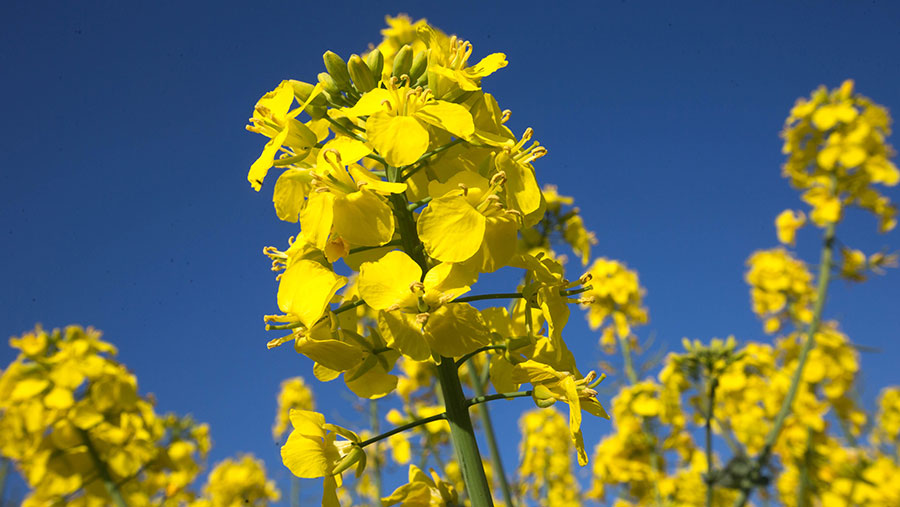OSR to stay firm overall but volatility is here to stay
 © Tim Scrivener
© Tim Scrivener Tight global vegetable oil supply will keep oilseed rape prices supported, but volatility is a strong feature of the market.
This was illustrated midweek with a fall of about £14/t after reports that Russia would support a humanitarian corridor for Ukrainian food commodity exports from the Black Sea if export and financial sanctions against Russia were lifted.
Old-crop oilseed rape was worth anything between £765/t and £800/t ex-farm midweek, with not all crushers looking for supply.
New-crop, meanwhile, had a harvest value ranging from £648/t ex-farm (Inverness) to £670/t (Erith and Liverpool).
See also: Defra grants of up to £300,000 to help farmers add value
German biofuel reduction
A further dampener to new-crop OSR prices came recently with the prospect of a reduction in Germany’s use of crops for biofuel, resulting from high food prices and the disruption caused by Russia’s action in Ukraine. Germany is a large user of oilseed rape for biodiesel production.
Traders describe the oilseed rape market as complicated, with conflicting factors pulling prices in different directions.
Overall, the tightness in supply is dominant, with the uncertainty over supply of sunflowers from Ukraine from both the 2022 and 2023 harvests keeping the market very nervous.
With a significant tonnage of old-crop still in store in Ukraine, there is a big question about where the 2022 sunflower crop will go, said Owen Cligg, trading manager at United Oilseeds.
In the UK, a 2022 crop area of about 365,000ha at a yield of 3.5t/ha would produce about 1.3m tonnes of the 2m tonnes needed by domestic crushers, so significant imports will be needed again.
Mr Cligg said UK growers had generally not sold forward any more free-market oilseed rape (OSR not committed through co-op pools) than on average over the past few years, while growers in continental Europe are understood to have sold higher proportionate volumes than in the UK.
Harvest logistics
Looking ahead to harvest, logistics are likely to be challenged again. “A lot of farm grain has moved now, so it’s not such an issue, but we’re expecting a bigger harvest and we struggled last year with a smaller harvest,” said Mr Cligg.
Philip Kimber, Frontier Agriculture’s commercial grain manager, said domestic oilseed rape prices would rise to imported price levels, with a reliance still on imported seed, although growers would be encouraged to increase their area in coming seasons.
Production of Canada’s main oilseed crop, canola, should rebound this year after a disastrous heat-damaged 2021 crop. However, this is largely genetically modified and will not reach the UK, going rather to mainland Europe.
There have also been market concerns about a recent drop in Chinese demand for vegetable oils. However, this is largely being put down to the strict Covid-19 lockdowns of the past couple of months, which are due to ease in June, and was not seen as big factor, said
Mr Kimber.
Oilseed market factors
- Tight domestic market and global vegetable oil markets
- Ukraine’s 2021 sunflower supply for export remains largely stuck in stores – where will new-crop go and what condition can it be kept in?
- UK production continues well below the 2m tonnes/year needed by domestic crushers
- Possible reduction in German demand for OSR for biodiesel production in favour of food supply
- Continued uncertainty about conditions for lifting of Indonesian palm oil export ban
- Recovery of Canadian and Australian OSR crop output
- Uncertain economic outlook
